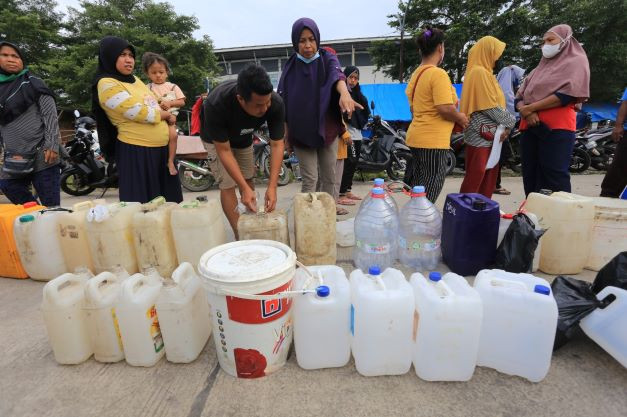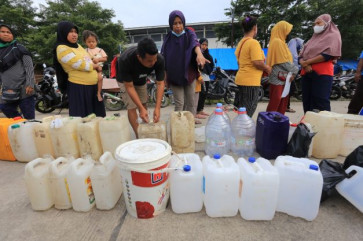Popular Reads
Top Results
Can't find what you're looking for?
View all search resultsPopular Reads
Top Results
Can't find what you're looking for?
View all search resultsUkraine war reveals inconvenient truth about Indonesian palm oil
The cooking oil crisis has shown how vulnerable the country's palm oil industry is, despite its large contribution to the economy.
Change text size
Gift Premium Articles
to Anyone
From a strictly economic perspective, Indonesia should be benefitting from Russia’s invasion of Ukraine.
As a producer of energy and food commodities, we should be experiencing a windfall as commodities produced by the warring nations are disrupted, including substitutes for palm oil, of which Indonesia is the world’s largest producer.
Ukraine and Russia are significant producers of rapeseed and sunflower oil, which have many of the same applications as palm oil. The closure of trade ports in Ukraine and the sanctions slapped on Russia have caused the world to turn to palm oil instead, increasing global demand for the commodity and its price in turn.
In January, the global price of crude palm oil (CPO) was US$1,376 per ton, according to stock market portal Markets Insider. After Russia’s invasion of Ukraine in February, the price skyrocketed, peaking at $1,935 per ton on March 1.
India, one of the world's largest importers of edible oils, has scrambled to order from palm oil producers like Indonesia as it attempts to tame a food crisis and inflation caused by vegetable oil shortages.
But Indonesia, instead of benefitting from the disrupted supplies, has experienced its own cooking oil crisis at home. Amid high global prices, the government has struggled to hold onto enough palm oil for the domestic market. In March, it altered its domestic market obligation (DMO), domestic price obligation (DPO), export levies and taxes on the commodity in an attempt to keep more of it in the country at lower costs.
But none of the policy changes have proven effective. Cooking oil has gone missing from many markets. People around the country now line up for subsidized distributions of the commodity, some of them fainting or even perishing from exhaustion. Prices have remained high and scarcity persists as Ramadan approaches.



















